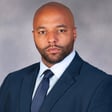Role of Probation Officers
00:00:00
Speaker
A probation officer who is out in the field, which means going out to do home visits, and they're shaking the hand of their offender. I would say that would be the painting that I see because they're out there making sure the community is safe, but also you can clearly see the relationship that they have with the offender. It's a good one. They're shaking hands. Everybody's smiling. That's what I would say would be the best painting.
Podcast Introduction
00:00:29
Speaker
What's up world? Have you ever wondered what does my friend or cousin actually do at work? If so, listen to Take Your Homeboy to Work Day podcast. Each episode I interview guests from different professions and dive into the arcs of jobs held, the education and training received, the skills and the experiences acquired, of course how much you can earn, and the intrinsic fulfillment that motivates them.
00:00:57
Speaker
So for anyone interested in hearing the firsthand experience of a specific career, these conversations are your launching pad. And please subscribe, follow, like, and rate five stars on LinkedIn or wherever you get your podcasts. We'd love to have your support.
Responsibilities of a Probation Officer
00:01:15
Speaker
Today's episode features state probation officers. Now probation officers work every day to ensure the safety of our communities.
00:01:25
Speaker
They promote safety by supervising an offender and assuring compliance with any court orders. They help them find the resources they need to complete their supervision while holding them accountable so they kind of serve as a part counselor and a part law enforcement officer.
00:01:44
Speaker
They assess needs with individualized supervision plans specific to each offender.
Meet Kimberly Jefferson
00:01:50
Speaker
So without a doubt, being a probation officer takes heart and ingenuity. And today's guest is Kimberly Jefferson, senior correctional probation officer with the Office of Community Corrections in the state of Florida. She loves what she does because she gets to help people when they are at a crossroads in their lives.
00:02:12
Speaker
She works alongside the state court system, community partners, and local law enforcement to help an offender integrate healthily into his or her community. Kim brings compassion and solutions for those she supervises and is a breath of fresh air for a critical piece of our society that needs more love, patience, and understanding. So thank you for all that you do, Kim, and welcome to the show.
00:02:39
Speaker
Wow, what an introduction. You make my job sound amazing and thank you so much for having me. I am so excited to be here. I wish I heard this introduction before I go to work. I need to listen to that because that means so much, you know, that was awesome.
00:03:00
Speaker
It's well deserved. It is a tough job. I mean, when you're dealing with people's lives and then the ripple effect of their families, I could only imagine how tough it is to make a tough decision. So you are well deserved at the introduction and it's no problem. Thank you for all that you do again. Oh, thank you. Thank you. Thank you for having me. And you are so welcome. I do this for the community and just making sure everyone stays safe.
00:03:30
Speaker
Awesome. So I guess I gave a quick introduction of what I think a probation officer is, but in your own terms, could you explain it, please? Sure. A probation officer is actually an officer of the court. We are like their officers. I supervise.
00:03:48
Speaker
offenders or probationers, the term is pretty much interchangeable. And when the court gives a disposition, a sentence, and they say, hey, you've gotten 24 months on probation, that's when everything starts. I am able to
00:04:09
Speaker
supervise them, make sure that they're doing what they're supposed to as far as any special conditions. That could be treatment, that could be some type of schooling. It could be paying restitution money that's owed to a victim. I'm just there to enforce all of that. I do home visits, making sure that their homes are safe. There's no drugs, no guns, anything that could be a detriment to the community. I also do drug testing.
00:04:37
Speaker
My main goal though is to make sure that once you have gotten out of prison or jail or left court, that you have a roadmap to becoming a, you know, a citizen with a job and with goals. So that's basically what I do.
Kimberly's Path to Probation
00:04:56
Speaker
Every day is different. I will say that.
00:04:59
Speaker
Yeah, I bet. Well, that was a great introduction and I loved. Thank you for giving those tangible things that you focused on to help probationers. So a great introduction and thank you. Now, what drew you to this career? Because it is such hard work. You're working with people. How did you even hear about this, get interested in this? What's your initial introduction into this type of work?
00:05:23
Speaker
So my initial introduction was actually in grad school. You learn about, I got my master's, I'll start there, and criminal justice. And that is so much such a broad term. But with my master's program, I was able to get insight into each parts of the criminal justice system. You have the correction side.
00:05:46
Speaker
which is your jail, your prisons. You have the probation side, which is what I do now. You have the court system. You have law enforcement, which is policing and things like that. So that was my first introduction. And then before I became a probation officer, I was actually working for the Pinellas County Sheriff's Office. I worked in inmate records.
00:06:08
Speaker
So my job at that time was to just make sure that every part of the process while you're in jail, I kind of oversee from the time you are booked in from the time that you leave. And when I would see
00:06:23
Speaker
The people leaving, they would give me their stories. They would tell me how they got here, you know, what happened to them. And you kind of create a bond and I wanted to know what happens next. You know, they'll say, oh, I'm on probation. And I figured, well, what is probation about? What are they going to be doing? And that's what piqued my interest.
00:06:45
Speaker
So I just knew I wanted to know the other side of that. What happens when you get out of jail or out of prison? Where do you go? And I knew that I could actually help people in a capacity where I'm able to give them the tools that they need so that they don't have to go back to jail or prison. So that's what started everything.
00:07:09
Speaker
Well, you know they say um, I guess it sounds a lot like curiosity curiosity is what drove you to this and you know, I guess I love oh Man, I am forgetting the phrase. You just said it. I should have wrote it down, but you just used a term Which is why I wanted you on the show
00:07:26
Speaker
Because you are bringing compassion to heart. You want to know the other side of these people's lives, and you want them to be thriving. And so thank you for sharing that. Now, really quickly, what got you interested in getting a master's in criminal justice?
00:07:43
Speaker
So of course, I am a rattler. So shout out to FAMU. While I was at FAMU, I majored in history actually, and then I did my minor in pre-law. So really it started there. And right after I graduated, I stayed in Tallahassee and I started working for the Florida Department of Law Enforcement. And there I was a background investigator.
00:08:10
Speaker
Um, so I really, yeah, that was, that's a different side of law enforcement as well. So I really enjoyed that part of it. But while I was there, I said, you know what, I think I can get some more schooling and get a better understanding of this criminal justice system. So that's what led me to getting my master's degree, because I just wanted, like you said, the curiosity, I wanted to know
00:08:33
Speaker
all the parts. My interest was peaked. So that had a really big part in it, just working for the Florida Department of Law Enforcement. Very cool. Now, I don't know much about earning a master's in criminal history. Is there one class that stood out to you that prepared you for this type of work? What was the actual curriculum like? Did it prepare you for this work?
00:09:01
Speaker
Actually, it did. One of my favorite classes was foundations of law enforcement. That gave me the one, two, three, four, just going down the line of what law enforcement is supposed to do, what they're about, the history of it. I really enjoyed that class because that was the class, like I said, that broke it all down for me. You have so many sectors.
00:09:28
Speaker
a part of the criminal justice system. And you can work in so many parts
Misconceptions About Probation
00:09:33
Speaker
of it. And I think probation is probably the one area that is the most quiet. No one really knows what we do. They have an idea, but it's always so much different than our actual work. So probation is always good.
00:09:51
Speaker
You know, probation has always been that thing that just sitting there and I'm thinking, okay, I want to know more. And my goodness, I had no idea. I was not prepared for the actual job itself.
00:10:07
Speaker
So let me ask you this, you bring up a good point that people's perception of a probation officer usually stems from Hollywood media, what CSI or law and order may make it out to be. But I guess what is the biggest myth from what's in the media versus the reality of the job?
00:10:30
Speaker
I would say the worst perception is that your probation officer is just there to bang heads, just to stand over you, tell you what you're supposed to do, and that's pretty much it. Or you're just going to get a violation if you don't do it.
00:10:47
Speaker
That is the furthest thing from the truth. Every person is different. So you have to use your skills and your listening skills to kind of figure out, okay, what does this person need? Everyone's needs are different. So you really want to figure out, is it their focus to be treatment? Is their focus to get their GED? You know, what goals do we need to enhance?
00:11:13
Speaker
And that goes by person. Every person has different goals. Every person has a different attitude as well, because you can only help someone that wants to help themselves. So it's not a one-fit kind of position. You really have to use your brain and kind of give the care to the person in a way that is on their level, what they need, what their needs are.
00:11:40
Speaker
Respect, respect. Okay, well, thank you for that. Thank you for
Becoming a Probation Officer
00:11:43
Speaker
answering those questions. So now let's jump to the first job where you said you were working at Pinellas County, where you had that initial interest into what happens on the other side. So when you knew you wanted to become a probation officer, what were the steps you took to transition from this job in Pinellas County to actually being a probation officer for the state of Florida?
00:12:08
Speaker
Sure. So I'm pretty sure it has a kind of story to it. Of course, short story is I did have a liver transplant, so I was not able to go back to my job with the sheriff's office. And so while I was recovering from that particular
00:12:28
Speaker
piece of time in my life, I realized I really wanted to help people. And also my grandfather, he was a sheriff's office, a sheriff's deputy, I'm sorry, and a police officer for his career. So I kind of leaned on him a little bit asking him questions just about law enforcement itself. And I knew, okay, I can help people and get that law enforcement feel.
00:12:54
Speaker
So the first thing that I did was apply. The next thing was once I went through the extensive background check, because you really have to have a very clean history, they checked my credentials as far as my education. We are the only law enforcement agency that requires a bachelor's degree. So you do have to have a bachelor's degree.
00:13:19
Speaker
as yes, we are the only agency that does that. Because we kind of have that social worker law enforcement combination going on. So they really wanna make sure that they have people that have really gone through a college type atmosphere and have gotten the certain training that you need. And then once you've gone through that entire process, which takes a little bit to go through, the first thing is to enter the Law Enforcement Academy.
00:13:48
Speaker
For probation officers, our academy is about four and a half months. That's where you learn everything. I mean, literally they're taking you from scratch and kind of molding you into the probation officer that you become at the end. And you're taking classes. We did first aid for two weeks. We did defensive tactics, of course, because you are fighting, you know, if you have to.
00:14:16
Speaker
Let me take a note to ask. We're going to come back to that later. I'm going to take a note on that now. Of course, firearm training is required as well. You're literally in class. It's almost like going back to college again. You're in the dorms again. And our law enforcement academy is actually in Tallahassee.
00:14:40
Speaker
So people come from all over the state to go to this particular academy. So there at the academy you'll see
00:14:50
Speaker
Fish and wildlife, you'll see the police officers going through the academy. You'll see the Florida patrol that's out there, the highway patrol. You'll see them there as well. So we all go to this academy and kind of get our education and our training to become the officers in our particular sector.
Influences and Inspirations
00:15:12
Speaker
Now, this show is going to be about you, but I would love to just ask one question about your grandfather. Has he ever shared? What motivated him to want to become a sheriff, or how did that work out for him as a career?
00:15:25
Speaker
Yes, he always wanted to be in law enforcement. He attended FAMU. And once he did that, he kind of matriculated to the Tallahassee Police Department. So he's been in law enforcement. He did pass two years ago, but he
00:15:42
Speaker
for his whole life was into law enforcement. He went between the sheriff's office. He worked in Polk County, which is Lakeland, Florida as well. He was in Tallahassee for years. That was just his calling and just watching him and hearing his stories. One of the stories that I love is when he actually had to guard Ted Bundy, the serial killer. So yes.
00:16:09
Speaker
Yeah, so when he was talking about that, I was like, OK, this sounds cool. How can I be a part of this? But, you know, I knew that I did not want to be on patrol. I didn't want to patrol the area or be a detective. I wanted a more hands on role where I see the people and I get to create, you know, a type of bond with them.
Types of Probation Officers
00:16:36
Speaker
And that's what probation allows me to do. So I kind of took a detour from where he was and kind of went a different direction, but still under the law enforcement umbrella. Yeah, yeah. Well, gotcha. Well, thank you so much for sharing that about your grandfather. And what was his name, just so we can honor him? Yes, Wolford Giles. Gotcha. Well, thank you for sharing about your grandfather. I appreciate it.
00:17:00
Speaker
Thank you. Thank you. Now, I'm going to, so I know the role of a probation officer is to keep the community safe. You do that by monitoring probationers. And I guess I want to, I have a business background. So I'm putting on my business sunglasses now. And I guess this next question is coming from that lens or that viewpoint.
00:17:27
Speaker
So as you think about the work that you do and the return on investment that you're giving to the community or to the state, are you all able to quantify the work that you do in any kind of way? Is there a dollar amount that you could put on?
00:17:45
Speaker
a probationer who is successful and graduates and goes on and contributes in a healthy way versus somebody who may slip off a little bit and then we have to punish them. Is there a way to quantify the work that you do?
00:18:00
Speaker
Sure. Honestly, I wouldn't be able to give you a dollar amount, but I will give it to you in law enforcement terms. It's going to be a term that many people may not know, recidivism.
00:18:16
Speaker
That's how we measure. Criticism is basically when you have someone that's been through the system, you really want them to do well. Our goal is to make sure that they don't come back. So that's how we measure, making sure that once you are gone and we have given you all the tools that you need to succeed, that you're not coming back to me.
00:18:39
Speaker
You know, we really want to make sure that you are able to stand on your own, help your family, you know, be the best version of yourself that you can be. So I would say definitely recidivism. We really want to make sure that once you're gone, you are gone. And I guess, how many probationers are you working with at one time? Yes. How many people do you work with at one time?
00:19:08
Speaker
Okay, so when I was just a regular probation officer, you know, coming straight out of the academy, the highest that I went to was 115 people. Wow. That is very stressful because, yes, you have 115 different personalities. You really have to change your hat sometimes. You can have the probationer that's doing really, really well and not really
00:19:36
Speaker
you know, an issue for you. And then you have the one that doesn't listen, the one that you have to stay on, the one that you really have to give some extra oomph to. So I think that, you know, it just it varies. But right now, as a senior officer, I have a caseload of 45, because I do have another hat that I wear as a court officer. And I guess we'll get into that another
00:20:04
Speaker
at another time, but your caseload can change depending on the type of officer that you are. There are different kinds of officers. Okay, okay. What are those kinds of officers?
00:20:21
Speaker
So you'll have your regular felony probation. That's what you're going to get right when you come out of the academy. Then as you go to a senior officer, there's different kinds. You have what's called drug court.
00:20:36
Speaker
And those officers just deal with those who have substance abuse problems, more so than your regular probationer. They're going to be the ones that have to go to court every month. They're going to have to come into the office twice a week sometimes to do drug testing. So you have a drug court officer. You also have what's called community control.
00:20:59
Speaker
Community control officer is your officer that you're going to wear your ankle monitor. That's that GPS that tells us when you are outside of your boundaries. So you're going to have a community control officer. Yes. Um, and then the other type of officer is what I do. And I am a court officer. I am a court liaison. I go to court Mondays and Fridays.
00:21:23
Speaker
with a particular judge and I give them a little bit of help when they're making their judgments. I talk with the state's attorney. I'm sitting next to them kind of talking about what would work for the defendant. You know, would probation work? Is jail better? You know, I'm there to just lend a hand from the probation side.
00:21:47
Speaker
So that's where I am right now. So to do that and to go to court twice a week, my caseload had to come down significantly because you do have to prepare.
00:21:58
Speaker
and understand the cases that the judge is going to present. So you have to do your research. You have to make sure you understand what's going on with the probationer. So those are the three different types. And then the next level after mine, which would be a promotion, would be the sex offender officers. That is a caseload of just under 50. And that's going to be your sex offender officers who
00:22:25
Speaker
Only have sex offenders their probation is very very strict. Of course They do have monitors on them so that we know where they are They do have a different type of reporting schedule. They have to come in once a week They have to be seen at home once a week. They have to tell their whereabouts. They're not able to use the internet They have regularly scheduled searches. So that is the top tier of
00:22:52
Speaker
of probation is your sex offender.
Courtroom Dynamics
00:22:55
Speaker
And it takes a little bit to get there because it is a strenuous job. And you really want to make sure you have your wits about you working with those who have committed sexual types of crimes.
00:23:09
Speaker
Yeah, I bet. Well, thank you very much for that breakdown. I would love to maybe dive into, if you're able to, I would love to dive into how you prepare for going into court. I know you mentioned that you do some prep work so that you could be prepared to give insight to the judge.
00:23:30
Speaker
What is that? What does that look like? So basically with every probation office around the county, there is a court officer for each judge. And for my particular judge, it's going to be those on probation who are all around the county.
00:23:50
Speaker
So I don't know these cases, they're not particularly mine. So what I have to do is go in, see when their probation started, what was the violation for, because usually that's why I'm there, is for their violation of probation hearings. I want to make sure have they paid any money.
00:24:09
Speaker
Have they completed any of their special conditions, like I said, treatment or any type of restitution to be paid? I'm looking to see where they're at at this particular time in their probation. That way, when the judge wants to make a ruling on their violation, he has all the whole picture. He knows exactly what's going on with this offender. So I'm basically doing the leg work
00:24:37
Speaker
Giving him an idea of what this particular probationer has been doing so I could have on the docket which is you know the court calendar I can have maybe 30 people that I'm doing my investigations on because 30 people have violated their probation so I need to make sure that I give the judge the full picture and
00:24:59
Speaker
And then when I'm talking to the state's attorney, they're asking me, hey, well, did he complete this? Did he do that? And I'm able to say, yes, he did. Or no, he did not. You know, we're kind of volleying back and forth trying to figure out what would be the best outcome for the violation.
00:25:18
Speaker
Gotcha, gotcha. Thank you. The part of the show is to pull the curtain back on what people do. So that was awesome to hear because I've always been interested in learning that. And I guess what's your relationships like with the judges and the state's attorney? Do you work on building relationships with them or is it more of you just go in, you give the info and move on? What's it like working with judges and state's attorneys?
00:25:42
Speaker
So it's really fun because you really get to see the court system in action. These particular participants in the court system is going to be your public defender. You're going to have your state's attorney, of course, who's for the state. And you're going to have your judge. You're going to have your clerk.
00:26:03
Speaker
who's there kind of taking notes as well. So it's all a big dance. We're all kind of working together. So it's really fun to be a liaison for my department because I am the first person that they come in contact with. So I've got to be on my game, you know? And so it is a good working relationship. It's really fun to kind of see what they do and they get a chance to see what I do.
00:26:31
Speaker
And for the most part, it's the same cast of characters. So the judge and I, we get to volley back and forth. It's kind of cool talking. And he's a jokester, so we're laughing a lot of the times. So it's pretty fun. If you get a good judge like I have, then you'll have a great time. So I really enjoy it. It's really fun. And like I said, I get to see the other side of the criminal justice system work.
00:27:00
Speaker
and not just be kind of stuck in my office for five days, you know. So it is fun. Very cool, very cool. And that's, I'm glad you have a judge that, I guess, I don't, the phrase that comes to mind is bring humor. I know it's not always a fun situation or a laughing situation, but tries to make that environment a little bit positive by bringing humor to it. So that's good to hear. Yes, absolutely.
Impact and Success Stories
00:27:28
Speaker
So in the time that you've been serving as a probation officer, what has been your proudest achievement? Man, I would say I have kind of two answers to that.
00:27:45
Speaker
The first one would be, I did receive an award because of one of my ascenders or probationers who needed help. While she was in prison, she did witness a crime.
00:28:01
Speaker
And they wanted to put the person away who had actually committed the crime. I don't want to get too graphic with it, but it was a form of sexual assault that she did witness. And as she had gotten out of prison and was now on probation, the state wanted to bring charges against that person who had committed the crime.
00:28:22
Speaker
And she said, I can't do this. They're going to ask me so many questions. What if I get it wrong? What if I'm not able to answer the questions correctly? So I told her I would sit with her. I told her if they come to want to question her, she can do that in my office.
00:28:43
Speaker
And I didn't think of it as this big deal at the time because I did not have to do that, but I thought it would make her more comfortable because we had a type of rapport. And when the investigator came to my office, we all sat in my office and he asked her questions.
00:29:00
Speaker
She felt so comfortable. She did amazing. And at the end of everything, the investigator said, I really just want to talk to your supervisors if that's OK. And I didn't think anything of it at the time. But he did send an email to my supervisors explaining my professionalism and just how great it was that I was there for her as her probation officer. So I did receive an award at an award ceremony.
00:29:30
Speaker
Yeah, congratulations. Thank you, thank you. So that was, I wasn't expecting it, but it did happen and I guess, you know, they said I was just a great liaison for the department because I was his first, you know, I was the first person that he was actually able to meet with and it went so smoothly.
00:29:51
Speaker
Uh, so I would say that was a great, uh, time. And then I'm going to be a little cliche. This is probably just when I get those phone calls and those updates that say, Hey, I finished school. I, I got one, um, yesterday. In fact,
00:30:13
Speaker
he finished barber school so proud you know and he's been off probation probably six months now but he wanted to call me to update me and say thank you so that is probably the reason that drives me forward i would say when they call me to say thank you for your help
00:30:35
Speaker
Thank you for getting me off probation early because I love to do that. There's no reason for you to just sit on probation. If you're done with what you're supposed to be doing, I always send a letter to the judge. So I try to keep probation very interactive and those phone calls mean everything. So I would say those. Yeah.
00:31:00
Speaker
You know, earlier you had mentioned recidivism and you said part of the goal is not to see them anymore. And I guess I actually wanted to ask, you know, in a positive situation, do you actually talk to or keep in contact with them? So to hear that sometimes they will reach back out to you and say thank you for your support or, you know, you're getting those phone calls and emails that they can take it off probation. So that was actually a thought of my mind is in those positive cases, do you actually hear any good stories? So that's that's great to hear.
Closing and Call to Action
00:31:29
Speaker
So awesome. Thank you for sharing.
00:31:30
Speaker
Yes, absolutely. The ones that work hard, they really do work hard at their probation and you can tell that they really want to do well. So it's a joy to see them, you know, just exploding in their careers, just really putting their best foot forward and getting those updates. It means everything.
00:31:50
Speaker
Thank you for listening to Take Your Homeboy to Work Day podcast. This concludes part one. Check back in on Friday for part two. But before you go, we need your help to spread our message. So please subscribe, like, and rate five stars wherever you get your podcast and on LinkedIn at Take Your Homeboy to Work Day podcast. Thank you.














